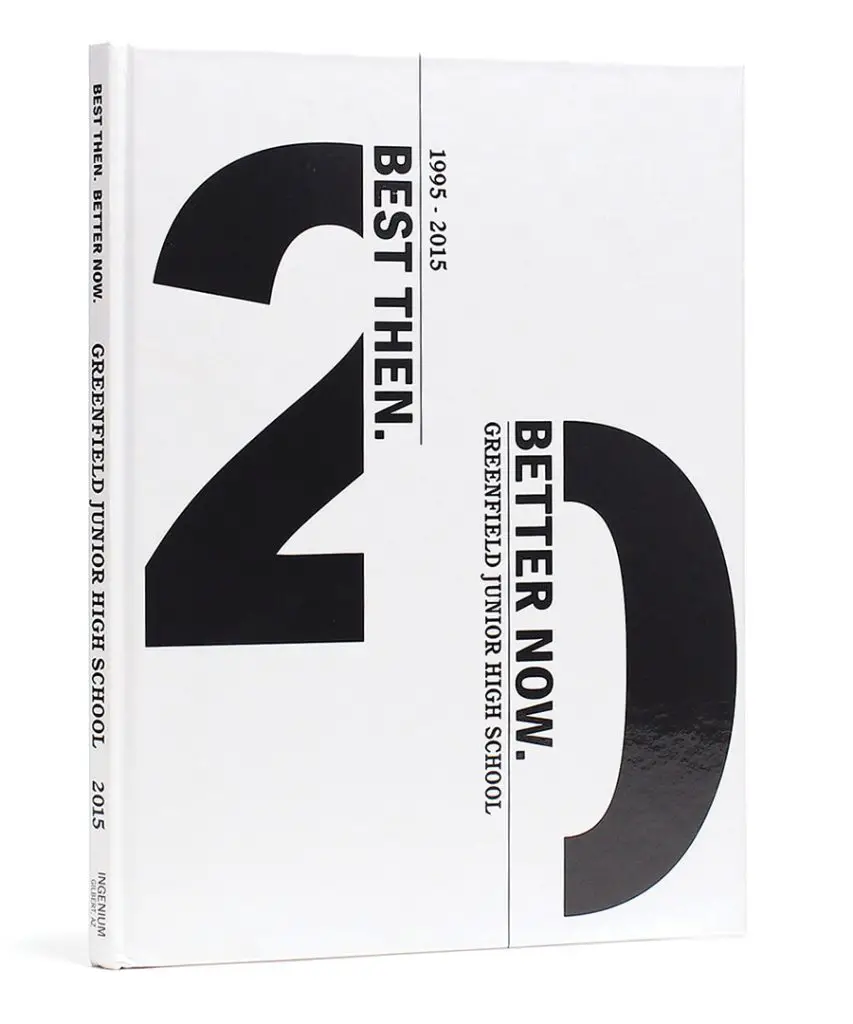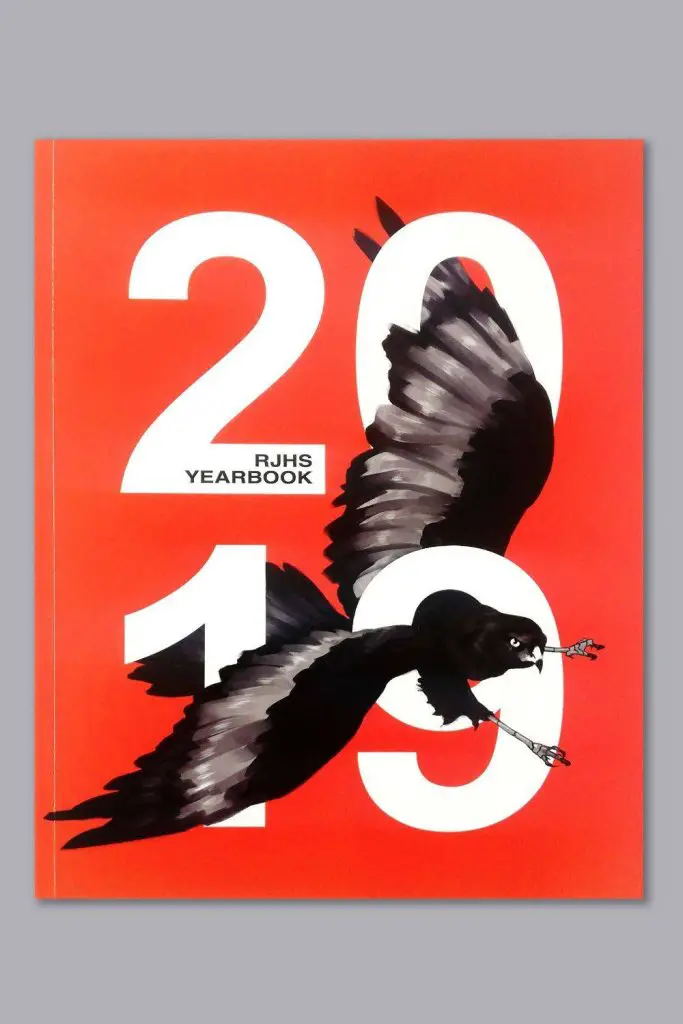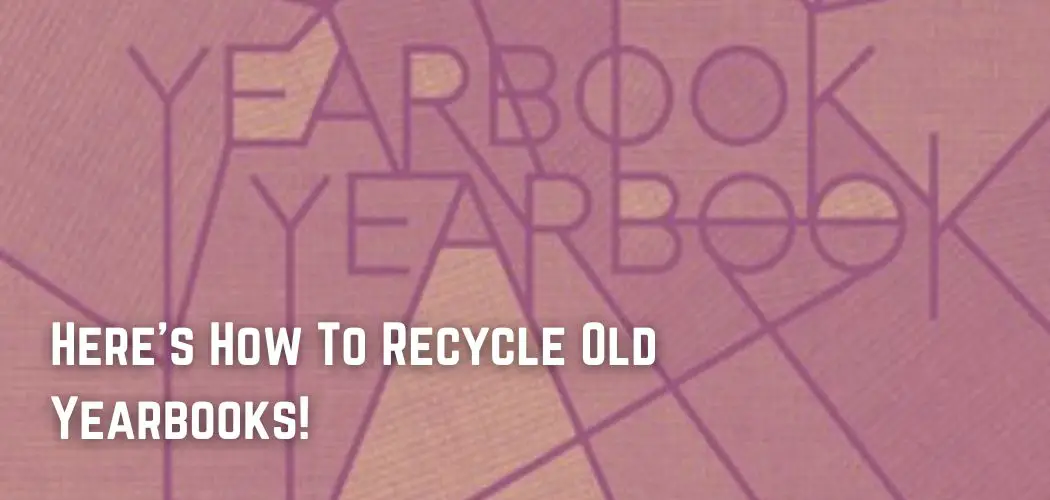Even though book sales have stayed the same and magazine subscriptions have gone down, you probably have a collection of both on your coffee table, in your bookcase, or in your garage.
Hopefully, when you are ready to empty things out, recycling will be on your mind. Yearbooks and periodicals belong to the category of mixed paper, which also includes catalogs and phone books.
Even though mixed paper has a lower commodity value than newspapers, office paper, and corrugated cardboard, the majority of U.S. paper mills recycle mixed paper.
Donating Is An Option
The sentimental significance of yearbooks is significant. They are excellent at remembering important prior events and recognizing alumni. In essence, they describe the events of a certain school year.
It may be difficult to donate yearbooks because someone else may not share your feelings about them. Since you are the one with the educational experiences, it may be difficult to find someone to accept them.

Alternatively, you can donate them to your alma mater, particularly if they are dated. Most likely, they have fewer copies, so an additional copy will be appreciated.
There may also be historical groups and libraries interested in your old yearbooks. You can send your yearbook to groups that are making an effort to document or store old yearbooks.
You may also bring a smile to someone’s face with your old yearbooks by scanning and posting excerpts on Facebook. They are likely to be noticed by your old classmates, and it’s likely that someone couldn’t afford to buy them at the time.
You may offer to provide yearbooks to anyone who requests them. And instantly, you will tidy your home, improve your mood, and safeguard the environment.
Turn Them Into Artwork
If you’ve exhausted your options for sales and donations, perhaps a creative twist is the way to go. Donate books to the art department so that they may use them as a new medium for art projects.
The Eagle staff donated old books to art classes in 2015, which transformed them into imaginative sculptures. The art department at Allen High School then put the awards in a trophy cabinet.
You might also utilize the books for your own creative and educational endeavors. Use individual pages or spreads as backdrops for journalistic bulletin boards. Laminate individual pages and serve as placemats for end-of-the-year dinners.
Cut out great photos for posters on photo composition and photography tips. Make the picture project into a lesson for journalism students, photographers, and new employees.
Utilize old books to create Christmas decorations. To make a yearbook Christmas tree, stack book stacks in a round, pyramidal pattern. Add lights for a more festive touch.

Joanna Lawson of Prince of Peace Christian School sculpted her pages into Christmas trees. Consider donating the trees or paying for the artwork.
Since you’re already ripping up books, use the covers to make an old book collage wall. Consider framing the covers or simply running rows and columns side by side.
A wall of yearbook covers could be a good way to market the book and start a conversation in the hallways.
Can You Dump It In the Trash?
To ensure consistent waste disposal, trash cans have been placed everywhere. So, it’s become second nature to think about throwing away things you don’t want.
Well, that is generally okay if the object has been discarded correctly. If you throw away something that cannot be recycled or is biodegradable, you’ve done well.
For example, paper breaks down quickly; the fungi and bacteria that break it down would have done so in two to six weeks.

It is a natural substance, so when it breaks down, it won’t have much of an effect on the environment. It will, if anything, replenish the ecosystem by enhancing microbial activity.
Nevertheless, it depends on the type of paper. Remember that some choices are altered, rendering paper unsuitable for biodegradation in some instances.
For example, paper that has been treated or bleached is not good for the environment and should be thrown away in the right way.
Similarly, certain unwanted objects should not be sent to our landfills. There are sustainable trash disposal solutions such as recycling, composting, upcycling, and others.
Not only does the biodegradation of some materials take up a lot of space in landfills, but it also releases harmful compounds into the environment. We also throw away these resources when we could have recycled, reused, or given them a new purpose.
Since it is impossible to know when paper is bad for the ecosystem, it is important to find ways to get rid of it that are good for the environment.
Trading Is A Realistic Choice
Trading them is another option for textbook recycling. You could set up a book exchange at a local bookstore, coffee shop, or community center.
It might be a wonderful experience to offer your textbooks to someone who needs them immediately. You could possibly discover a new favorite book.
Contact the venue management or owner and clarify your intentions before proceeding. Perform this before beginning.

You can also use social media sites to find and talk to other people at your school or in your area, like teachers or students. You may establish a book exchange club to share your textbooks with other members of the group.
In addition, you may use services like PaperSwap Books. The website enables users to create a list of books to share with the community and to request any book they’d like to read.
Think of it like borrowing a book from a friend, except that you have an infinite number of friends, each of whom has millions of readers.
Is It Recyclable?
In the end, yearbooks may be among the most significant publications we own. In the digital age, where most memories can be stored in the cloud, you no longer need a stack of yearbooks to reflect on the past.
Therefore, considering disposal, are yearbooks recyclable? Undoubtedly, yearbooks can be recycled. They are composed of paper, one of the most recyclable industrial substances. You may place the yearbook in the blue container.
Generally speaking, most recycling locations accept yearbooks, but you may call ahead to confirm.
Wait! What type of cover does the yearbook have before you place it in the recycle bin? Remember that paper recycling, in particular, is a delicate matter. A contamination can squander resources by destroying a batch.
Therefore, if it’s a hardcover, it must be disassembled before it can be recycled. But some recyclers will take the book in this state. They probably have a way to separate the parts themselves.
You should not recycle your yearbook if it has been moist or tanned. Remember the sensitivity of paper recycling; dispose of the yearbook in the garbage.
Conclusion
If you wish to recycle any remaining books, you must remove the cover, glue, and stitching. We recommend removing around one inch from the gutter to eliminate glue or stitching residues. The remainder of the matte or glossy sheet is recyclable.




